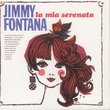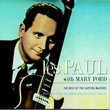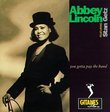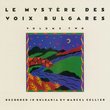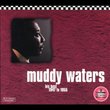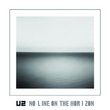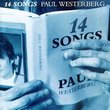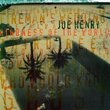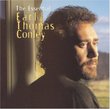| All Artists: Magnetic Fields Title: Wayward Bus & Distant Plastic Trees Members Wishing: 8 Total Copies: 0 Label: Merge Records Release Date: 1/23/1995 Genres: Alternative Rock, Pop, Rock Style: Indie & Lo-Fi Number of Discs: 1 SwapaCD Credits: 1 UPCs: 036172937523, 5034202001324, 5099950347551 |
Search - Magnetic Fields :: Wayward Bus & Distant Plastic Trees
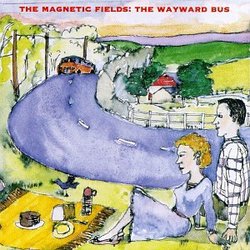 | Magnetic Fields Wayward Bus & Distant Plastic Trees Genres: Alternative Rock, Pop, Rock
|
Larger Image |
CD DetailsSimilar CDs
Similarly Requested CDs
|
CD ReviewsPure genius! Collin M. David | Putnam Valley, NY USA | 11/05/2000 (5 out of 5 stars) "I won't go into what everyone has already said about Stephen Merritt and who he is and all, but I WILL say that Merritt's 'poor production' on this album was intentional. It gives the album a warm, personal feel, which would be totally destroyed if the electric instruments were left in their pure, harsh forms. He processes and reprocesses them until they are rough, the dead opposite of the intent behind the instruments themselves. As a result, they are friendly to us.The female vocals are representative of what one can expect to find in 'indie' music... they don't have the melodramatic passion of what is expected from mainstream music, but the almost monotone, unwavering voice on this album complements the electronic nature of it. She sings slong, not sings over the music. As a result, we have a beautiful and unexpected merging of human and machine.And who can say no to heavy experimentation? That is the only way that anything new ever happens. No, don't start your Merritt collection with this album, but don't discount it. Come back to it later, listen to it in the background, and it will grow attached to you inseperably." The house we bought was really a lake... W. Davidson | Melbourne, Australia | 07/15/2002 (5 out of 5 stars) "This is my favourite of all the Magnetic Fields releases to date. It contains their first album 'Distant Plastic Trees' (minus one track - 'Plant White Roses'). It's is a strange and beautiful record full of songs that use unusual structures and orchestrations ('Babies Falliing' is little more than a folk song sung over sounds of trickling and noise, 'Living In An Abandoned Firehouse with You' uses warm atmospheric electronics and a great melody, 'Kings' is again a seemingly unstructured piece with a bizzare melody and odd backing track). On this CD all tracks are sung by Susan Anway who negotiates herself like a zombie through Stephin Merritt's lyrical word play and electronic musical mazes. The effect is stunning and not distancing as it may at first sound. Lurking amongst the obscurities is the alterna-hit '100'000 Fireflies' which sounds positively conventional in this setting.The rest of the CD (the first 10 tracks) are made up of The Wayward Bus songs which were recorded after the Distant Plastic Trees tracks. . Susan Anway is again your vocalist de jour and these songs are great in an entirely different way. There's a Phil Spector-ish vibe filtered through the Merritt lo-fi home recording system on songs like "When You Were My Baby" and "The Saddest Story Ever Told". There's the odd stinker ('Tokyo A Go Go' anyone?) but so many moments of divinity ('Candy', 'Jeremy', 'Like Lovers From the Moon') easily outweigh this. Track 11 is 4 and a half mintues of silence that separate the two sections of the CD - Why? Who knows, just chalk it up as one of the mysteries of the Magnetic Fields. I can take or leave some of the later efforts such as the 69 Love Songs extravaganza, but The Wayward Bus is a CD I constantly revisit. PS: Oh and can I just add how nice it is to again see the attractive artwork of Wendy Smith on the cover (she did the cover art for the band, Weekend, in the 1980's)." Bittersweet and lovely Chet Fakir | DC | 10/11/2004 (4 out of 5 stars) "I usually detest indie pop like this: low fi, precious, sentimentally gloopy songs with detached singing and little or no guts to the music. But damn if this doesn't work in an odd, magical way. The songs don't rock for sure, but the melodies and lyrics pack a delicate punch that can be either soothing, cathartic or just bittersweet. Songs for after the breakup with the love of your life."
|

 Track Listings (20) - Disc #1
Track Listings (20) - Disc #1

